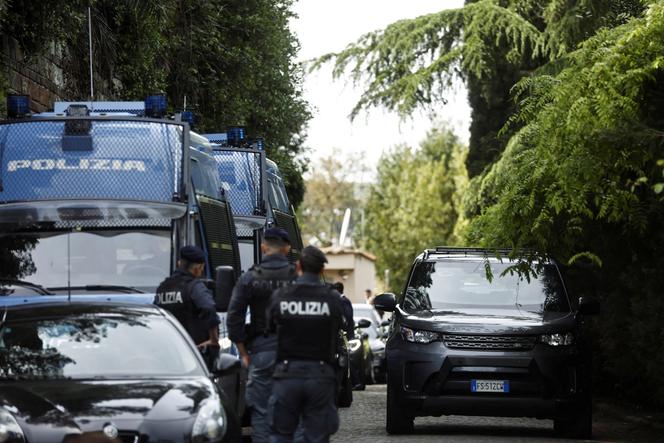The United States and Iran on Saturday, April 19, concluded a second round of high-stakes talks on Tehran’s nuclear program, with Iranian media saying the discussions took place in a “constructive atmosphere.” The two countries agreed to meet again in a week for further discussions.
“The two sides agreed to resume indirect talks at a technical level over the next few days and subsequently continue at the level of two senior negotiators next Saturday,” April 26, Iran’s Foreign Ministry spokesperson Esmaeil Baqaei said on X. Oman said the third round would be in Muscat, returning to the site of the first talks a week ago.
The Oman-mediated talks in Rome began at around 10:30 am local time and ended around four hours later, according to Iranian state television. Images broadcast by the state TV showed Foreign Minister Abbas Araghchi arriving in the Italian capital, with US Middle East envoy Steve Witkoff also expected to participate.
Iranian Foreign Ministry spokesperson Esmaeil Baqaei said the delegations were “in two different rooms” at the Omani ambassador’s residence, with Oman’s Foreign Minister Badr Albusaidi passing messages between them.
After Saturday’s talks, Oman’s Foreign Ministry said Iran’s top diplomat Abbas Araghchi and US Middle East envoy Steve Witkoff had agreed to keep negotiating. The talks, it said, “aim to seal a fair, enduring and binding deal which will ensure Iran [is] completely free of nuclear weapons and sanctions, and maintaining its ability to develop peaceful nuclear energy.” It said the talks are “gaining momentum and now even the unlikely is possible.”
Araghchi called the discussions a “good meeting” that yielded progress. “This time we managed to reach a better understanding on a series of principles and goals,” he told Iran’s state TV.
‘Maximum pressure’ campaign
The meeting comes a week after the two sides had what Iran called indirect talks in Muscat. Those were the first discussions at such a high level between the foes since US President Donald Trump abandoned a landmark nuclear accord in 2018. Western countries including the US have long accused Iran of seeking to acquire nuclear weapons – an allegation Tehran has consistently denied, insisting that its program is for peaceful civilian purposes.
Tehran and Washington have had no diplomatic relations since shortly after Iran’s 1979 Islamic revolution. Following his return to office in January, Trump revived his “maximum pressure” campaign of sanctions against Iran. In March he sent a letter to Iran’s supreme leader Ayatollah Ali Khamenei urging renewed nuclear talks while also warning of military action if diplomacy failed. “I’m not in a rush” to use the military option, Trump said Thursday. “I think Iran wants to talk.”
On Friday, Araghchi said Iran “observed a degree of seriousness” on the US side during the first round but questioned their “intentions and motivations.” In a social media post early Saturday, Baqaei said Tehran was “aware that it is not a smooth path but we take every step with open eyes, relying also on the past experiences.”
The leader of mediator Oman, Sultan Haitham bin Tariq, is due in Moscow in the coming days, according to his office and the Kremlin, which said he would discuss with President Vladimir Putin “current questions on the international and regional agenda” and other issues.
